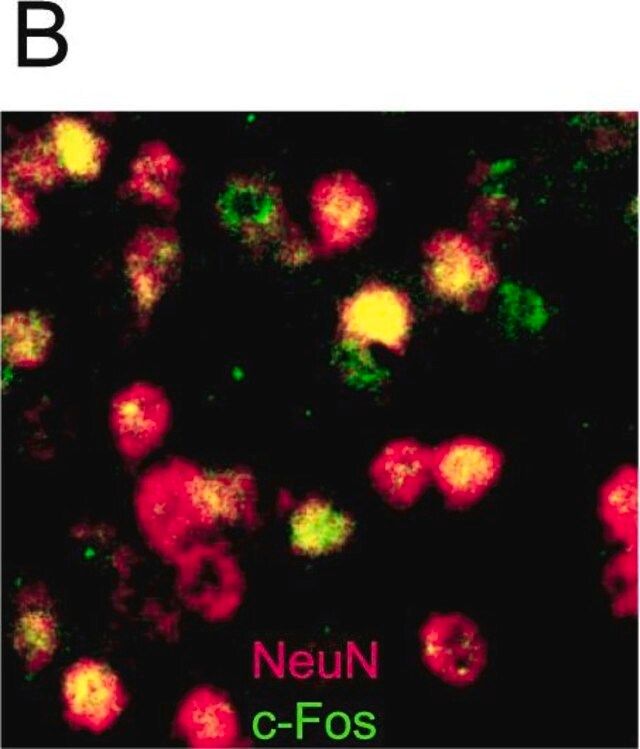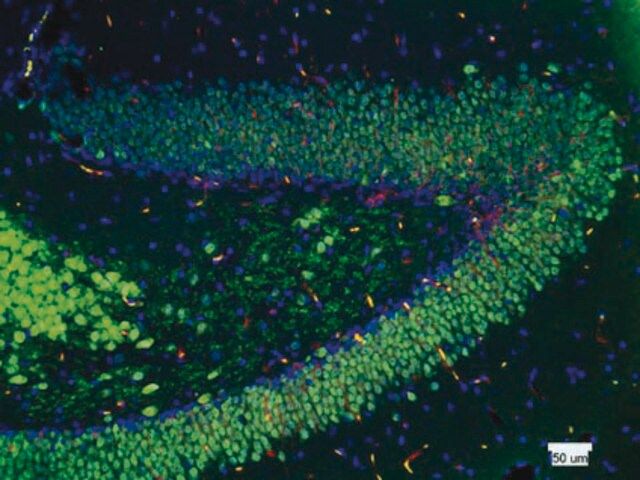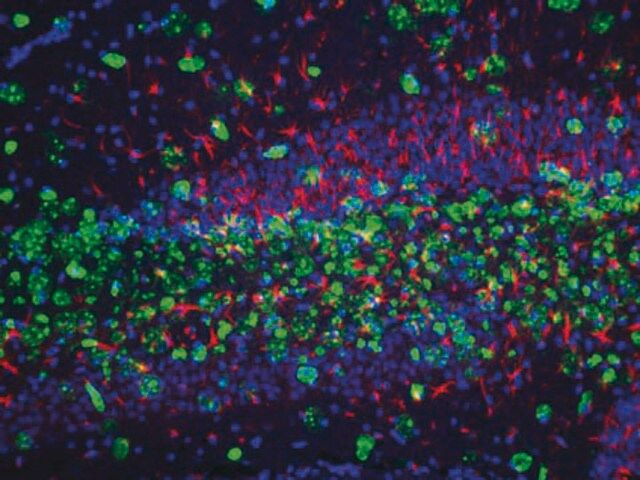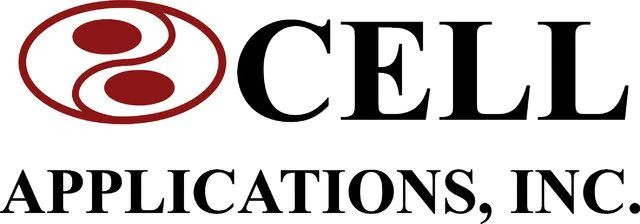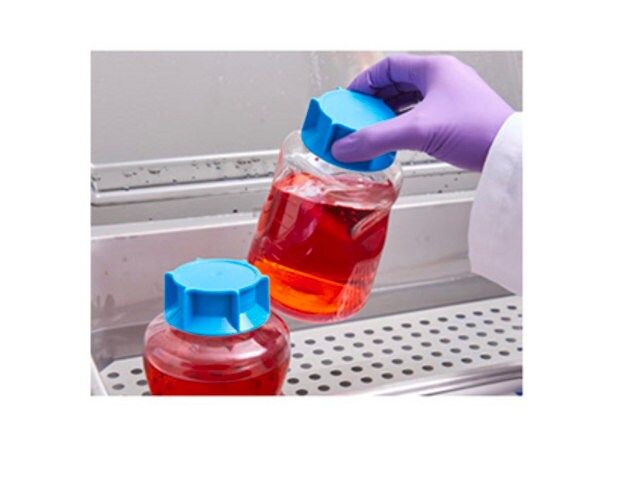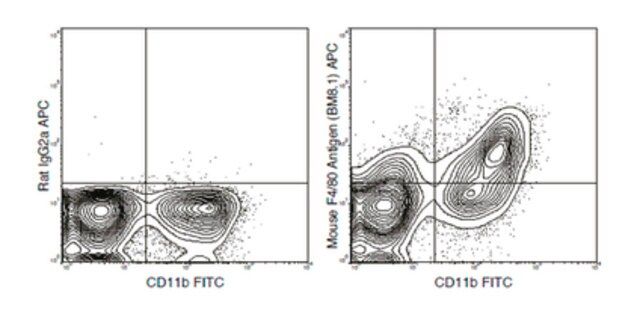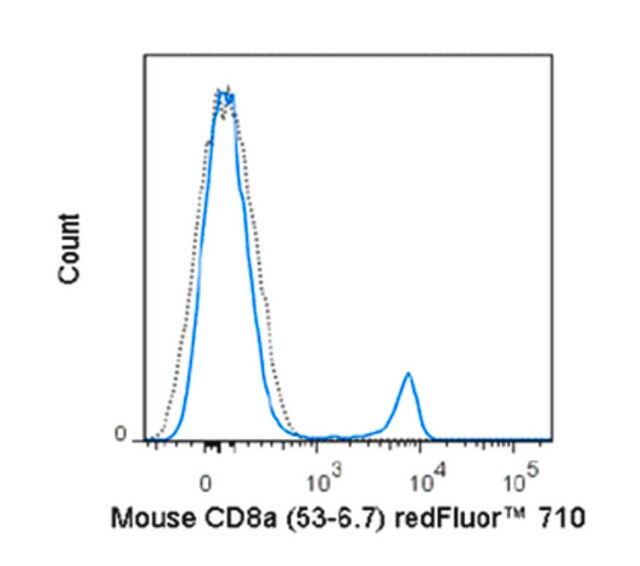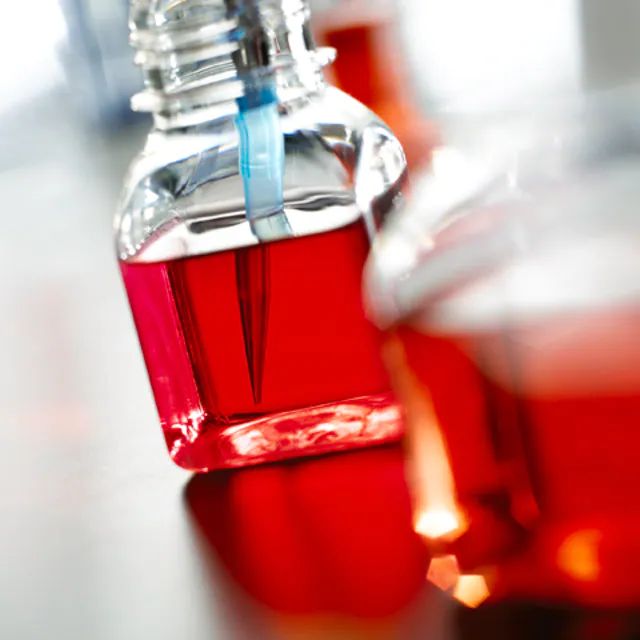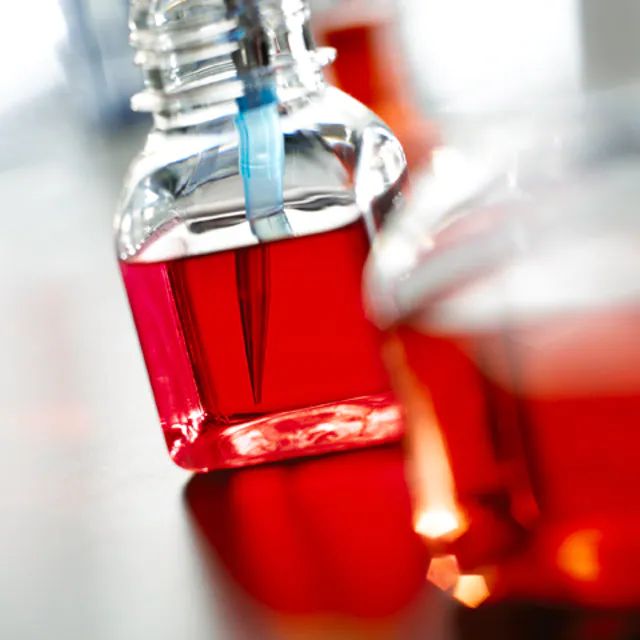产品说明
一般描述
NeuN antibody (NEUronal Nuclei; clone A60) specifically recognizes the DNA-binding, neuron-specific protein NeuN, which is present in most CNS and PNS neuronal cell types of all vertebrates tested. NeuN protein distributions are apparently restricted to neuronal nuclei, perikarya and some proximal neuronal processes in both fetal and adult brain although, some neurons fail to be recognized by NeuN at all ages: INL retinal cells, Cajal-Retzius cells, Purkinje cells, inferior olivary and dentate nucleus neurons, and sympathetic ganglion cells are examples (Mullen et al., 1992; Wolf et al., 1996). Immunohistochemically detectable NeuN protein first appears at developmental timepoints that correspond with the withdrawal of the neuron from the cell cycle and/or with the initiation of terminal differentiation of the neuron (Mullen et al., 1992). Immunoreactivity appears around E9.5 in the mouse neural tube and is extensive throughout the developing nervous system by E12.5. Strong nuclear staining suggests a nuclear regulatory protein function; however, no evidence currently exists as to whether the NeuN protein antigen has a function in the distal cytoplasm or whether it is merely synthesized there before being transported back into the nucleus. No difference between protein isolated from purified nuclei and whole brain extract on immunoblots has been found (Mullen et al., 1992).
特异性
Vertebrate neuron-specific nuclear protein called NeuN (Neuronal Nuclei). MAB377B reacts with most neuronal cell types throughout the nervous system of mice including cerebellum, cerebral cortex, hippocampus, thalamus, spinal cord and neurons in the peripheral nervous system including dorsal root ganglia, sympathetic chain ganglia and enteric ganglia. The immunohistochemical staining is primarily in the nucleus of the neurons with lighter staining in the cytoplasm. The few cell types not reactive with MAB377B include Purkinje, mitral and photoreceptor cells. Developmentally, immunoreactivity is first observed shortly after neurons have become postmitotic, no staining has been observed in proliferative zones. The antibody is an excellent marker for neurons in primary cultures and in retinoic acid-stimulated P19 cells. It is also useful for identifying neurons in transplants.
免疫原
Purified cell nuclei from mouse brain
应用
Research Sub Category
Neuronal & Glial Markers
This Anti-NeuN Antibody, clone A60, biotin conjugated is validated for use in IC, IH, IH(P), WB for the detection of NeuN.
Research Category
Neuroscience
Immunocytochemistry Analysis:
1:10-1:500 dilution of a previous lot was used. Neurons in culture should be permeablized with 0.1% triton X-100. All primary antibody dilutions should be performed with simple solutions containing only buffer and primary antibody without excess protein blocks or detergents.
For dual labeling studies using mouse monoclonals, antibody incubations should be sequential with MAB377B last. First mouse monoclonal antibody should be first detected with anti-mouse secondary prior to incubating with MAB377B. Excess anti-mouse IgG may be blocked by incubating with 1% mouse serum prior to MAB377B incubation. Detection of biotinylated NeuN monoclonal is via streptavidin. In some cases in may be necessary to pretreat the tissue with avidin to block excess biotin prior to immunohistochemisty (Wood and Warnke, 1981).
Immunohistochemistry:
1:200-1:2,000. The antibody works best on polyester wax embedded tissue but also works on paraffin embedded tissue at a lower working dilution. The antibody works well with formaldehyde-based fixatives. Citric acid and microwave pretreatment has been used successfully (Sarnat, 1998).
Western Blotting Analysis:
A previous lot of this antibody was used on western blot. Recognizes 2-3 bands in the 46-48 kDa range and possibly another band at approximately 66 kDa.
Optimal working dilutions must be determined by end user.
质量
Routinely evaluated by immunohistochemistry on brain tissue.
Immunohistochemistry(paraffin) Analysis:
NeuN (cat. # MAB377B) staining pattern/morphology in rat cerebellum. Tissue pretreated with Citrate, pH 6.0. This lot of antibody was diluted to 1:100, using IHC-Select
Optimal Staining With Citrate Buffer, pH 6.0, Epitope Retrieval: Rat Cerebellum
目标描述
46-48 kDa
外形
Protein A purified
Purified mouse monoclonal IgG1 in buffer containing 0.01 M PBS pH 7.1, 0.1% sodium azide with 15 mg/mL BSA as a stabilizer.
储存及稳定性
Stable for 1 year at 2-8ºC from date of receipt.
分析说明
Control
Brain tissue, most neuronal cell types throughout the adult nervous system
其他说明
Concentration: Please refer to the Certificate of Analysis for the lot-specific concentration.
法律信息
CHEMICON is a registered trademark of Merck KGaA, Darmstadt, Germany
免责声明
Unless otherwise stated in our catalog or other company documentation accompanying the product(s), our products are intended for research use only and are not to be used for any other purpose, which includes but is not limited to, unauthorized commercial uses, in vitro diagnostic uses, ex vivo or in vivo therapeutic uses or any type of consumption or application to humans or animals.
基本信息
| eCl@ss | 32160702 |
| NACRES | NA.41 |
产品性质
| 质量水平 | 100 |
| 生物来源 | mouse |
| 偶联物 | biotin conjugate |
| 抗体形式 | purified immunoglobulin |
| antibody product type | primary antibodies |
| 克隆 | A60, monoclonal |
| species reactivity | rat, mouse |
| species reactivity (predicted by homology) | chicken, human, salamander, ferret |
| manufacturer/tradename | Chemicon® |
| technique(s) | immunocytochemistry: suitable immunohistochemistry (formalin-fixed, paraffin-embedded sections): suitable western blot: suitable |
| 同位素/亚型 | IgG1 |
| 运输 | wet ice |
安全信息
| 储存分类代码 | 12 - Non Combustible Liquids |
| WGK | WGK 2 |
| 闪点(F) | Not applicable |
| 闪点(C) | Not applicable |

